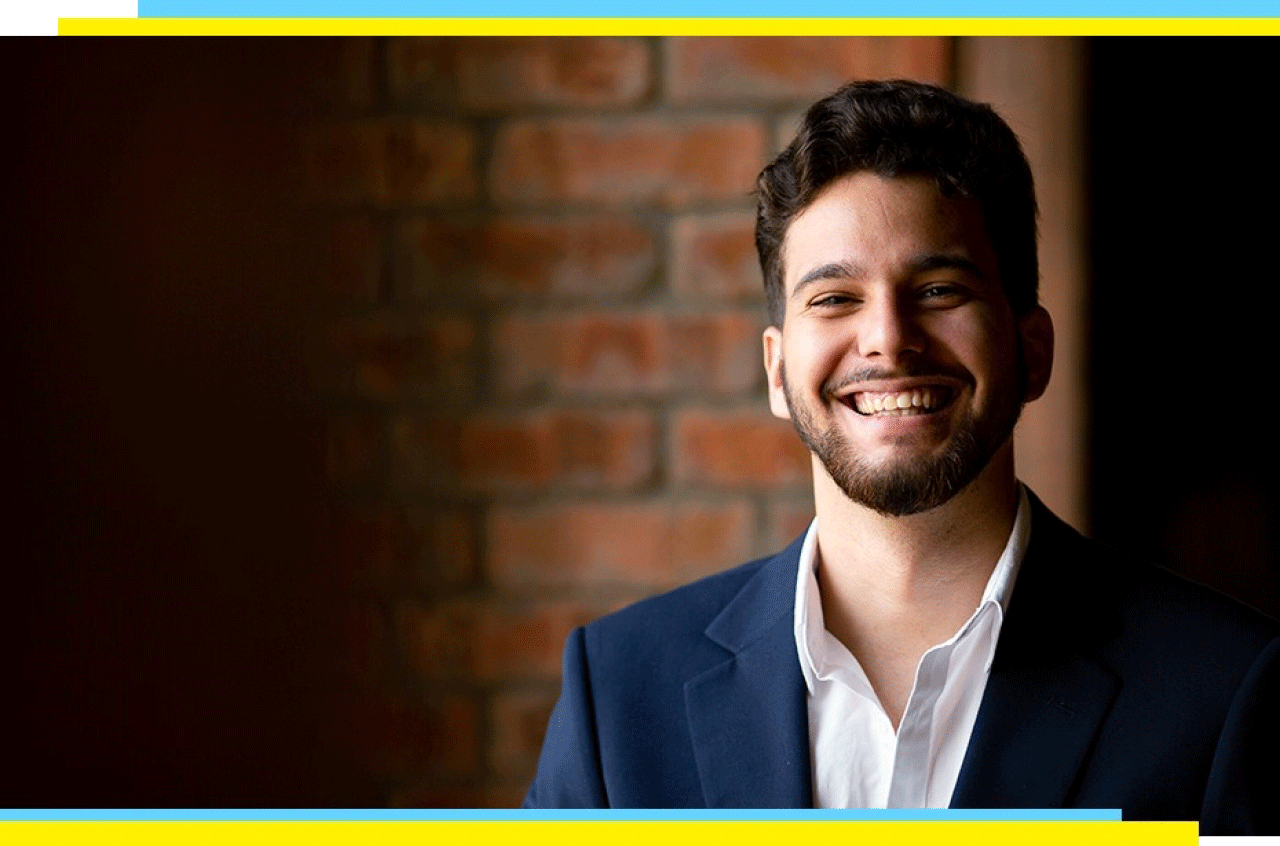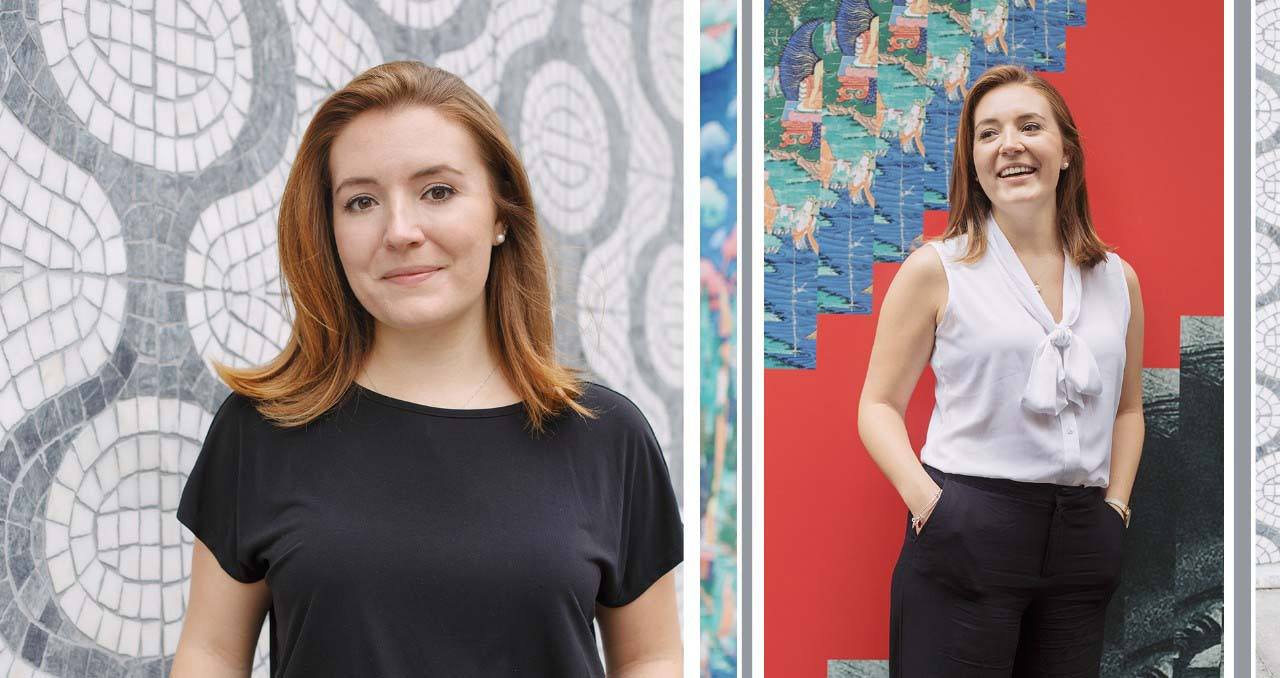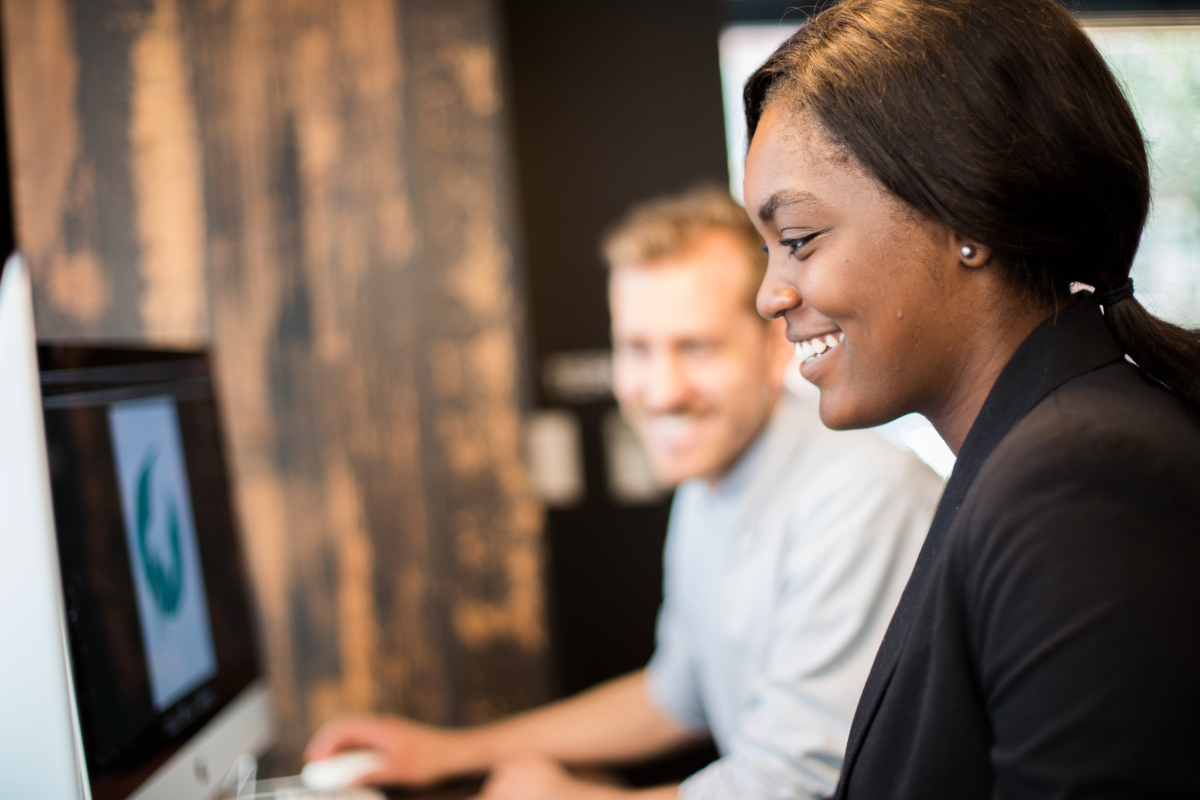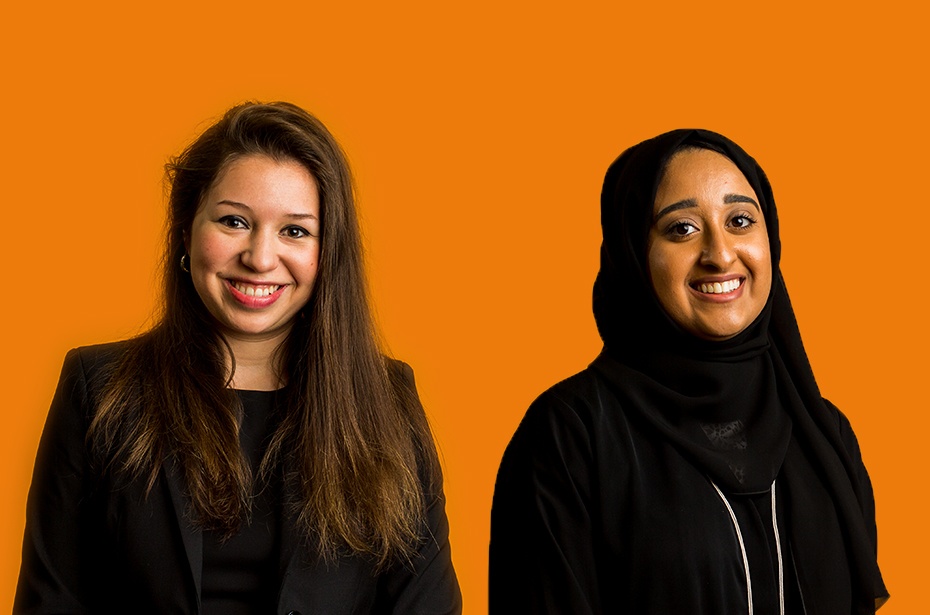
Nineteen of the women who made Forbes’ 2017 list of the Top 100 Most Powerful Arab Businesswomen are from the United Arab Emirates (UAE), a statistic that underlines the important work of the Girls Education Network (GEN) at NYU Abu Dhabi. The group, cofounded by students Sofia Gomez-Doyle and Ritu Muralidharan, aims to empower young Emirati women through collaborative workshops and dialogue. Here, we speak with Sofia and Shereena Almehrzi, GEN’s current codirector, about the group’s mission and vision.
NYU: What inspired the formation of GEN, and how would you describe its mission?
Sofia: Our work at GEN is always centered on collaboration. In October of 2014, I began having conversations with Ritu about bringing university students together to engage with young girls in our community. Together, we designed and held our first workshop for International Day of the Girl in 2014, then developed a series around concepts like empathy, communication, and the many forms that leadership can take.
Shereena: As for me, I came to GEN in the fall of 2015 as a workshop facilitator. It was the very first program that I joined on campus, but I was immediately fascinated by how the girls spoke about their lives and about what it means to be a woman or a girl in our ever-changing society. It also helped me realize I want to help design policies that empower women and girls across the Arab world.
How do the workshops operate?
Shereena: We start by bringing the whole room together through a question or an activity. We could ask them how they’re feeling, or maybe we’ll do a dynamic movement exercise, such as untangling each other from a big human knot. Once we’re all in that shared space, we realize how connected we are, and we’re ready to engage in thoughtful conversation.
At their core, our workshops are discussion-based, letting the girls share ideas and see how they change over time.
Sofia: It ensures that each girl has the opportunity to speak and be listened to. What’s most exciting is that, so far, we’ve organized a total of 48 workshops, engaged over 350 middle school and high school girls, and worked with over 80 NYU female facilitators.
That’s phenomenal! How have you designed your curriculum for the workshops? Can it be applied to other contexts and places, or is it specifically tailored to the environment of the UAE?
Sofia: Our curriculum has been heavily influenced by our work with the Dalai Lama Fellows Program. Ritu and I were honored to be recipients of the Fellowship in 2015, and their support has helped us pull from many resources and ideas. But even though we could theoretically apply much of our curriculum elsewhere, I think our executive board remains critically aware of the needs and issues relevant to girls in the UAE. For example, because the government declared 2016 the “Year of Reading” to promote literacy, we created a workshop that focused on creative writing and storytelling, even incorporating GEN alumni to help lead the class.
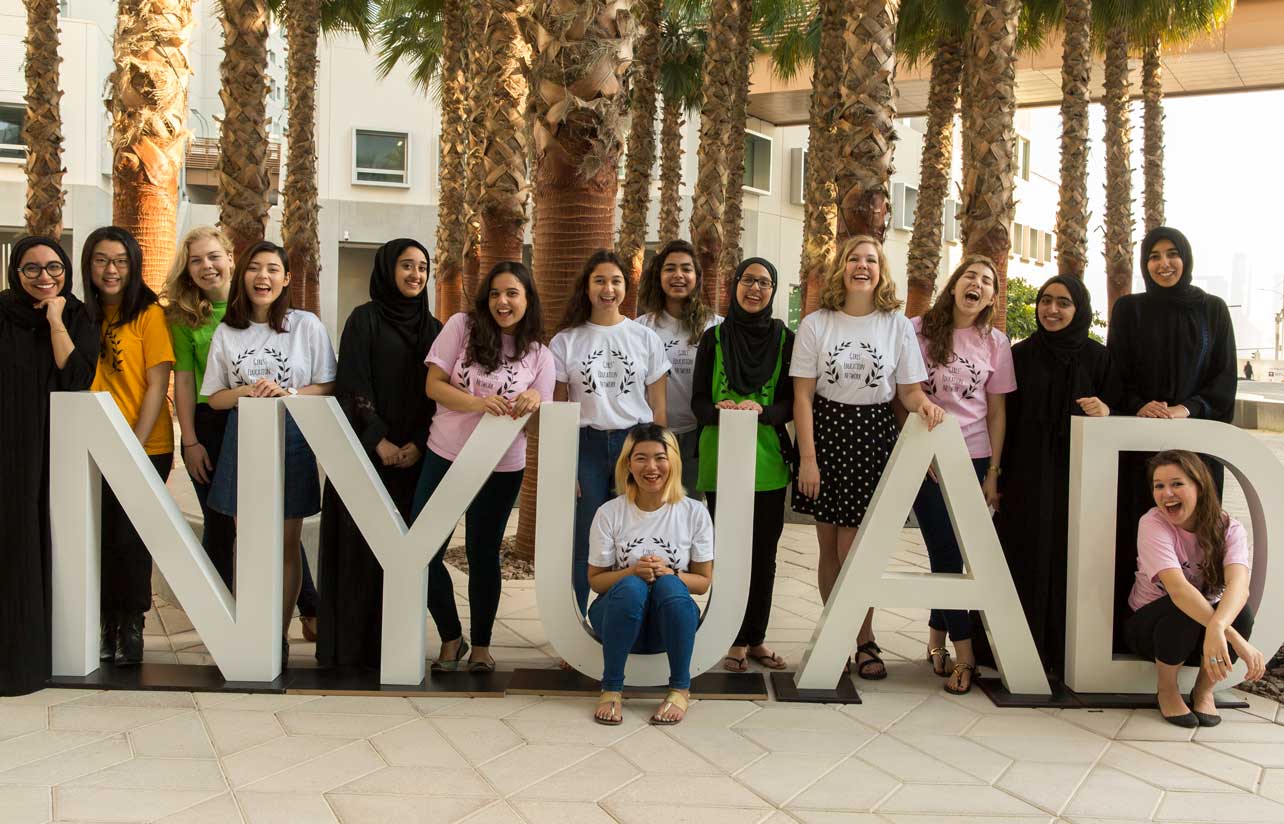
Do you think that, historically speaking, women’s advocacy and representation in the UAE is at a good place right now?
Shereena: Having grown up here, I think women’s empowerment is at a really great place right now. Women in the UAE have always been integrated into the community, its labor force, and its education. But now more than ever, we’re shaping the country with equal contributions to our male counterparts. We’re engineers, doctors, and policymakers. We even have Amal Al Qubaisi as president of the Federal National Council—a major first—along with nine female ministers on the board of the cabinet. So women here are far more elevated and vocal than observers around the world may actually think.
Sofia: I agree. And so much of that success—both here and elsewhere—is exemplified by access to quality education. That’s why I hope, at GEN, we can show girls that we need to support one another as women and as leaders. No matter where we’re coming from or what our experiences are, we need to work together to create a better world that continues to support and nurture the next generation of young women.
Speaking of leadership, how does GEN try to reconceive ideas of leadership, especially in such a diverse environment like Abu Dhabi?
Shereena: I think our curriculum encourages people to question what leadership is from the outset. Our workshops don’t try to provide answers, but try to prompt conversation. That’s why it’s really a process of thinking critically about what it means to be a woman in terms of where you live and your age group. Through this collaborative project, the girls continue to advise and inspire the facilitators too.
Sofia: I would add that we try to show how leadership is not just about holding a position or title. It’s about the work you do and the values you hold. It’s about understanding how to leverage the unique skills and talents of each person by working together, and it’s about deconstructing “top-down” forms of leadership while realizing that our identities are culturally and locally influenced—that there is no single definition of how to be a woman or how to lead.

